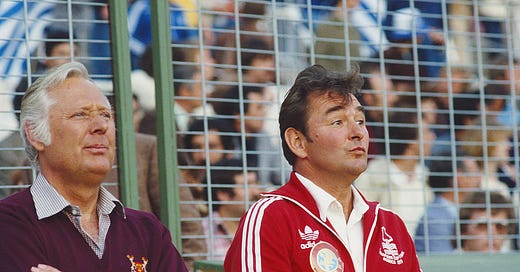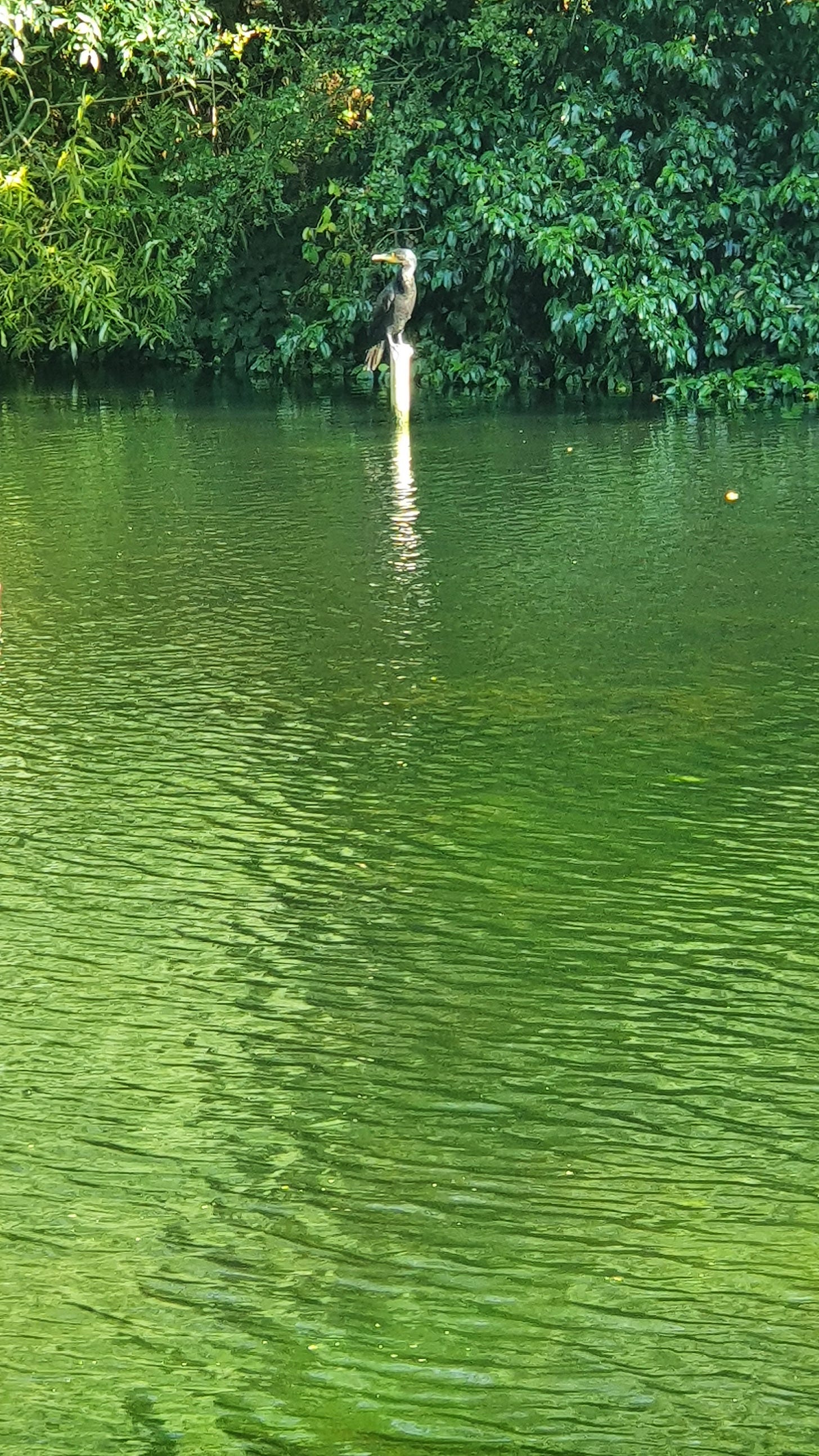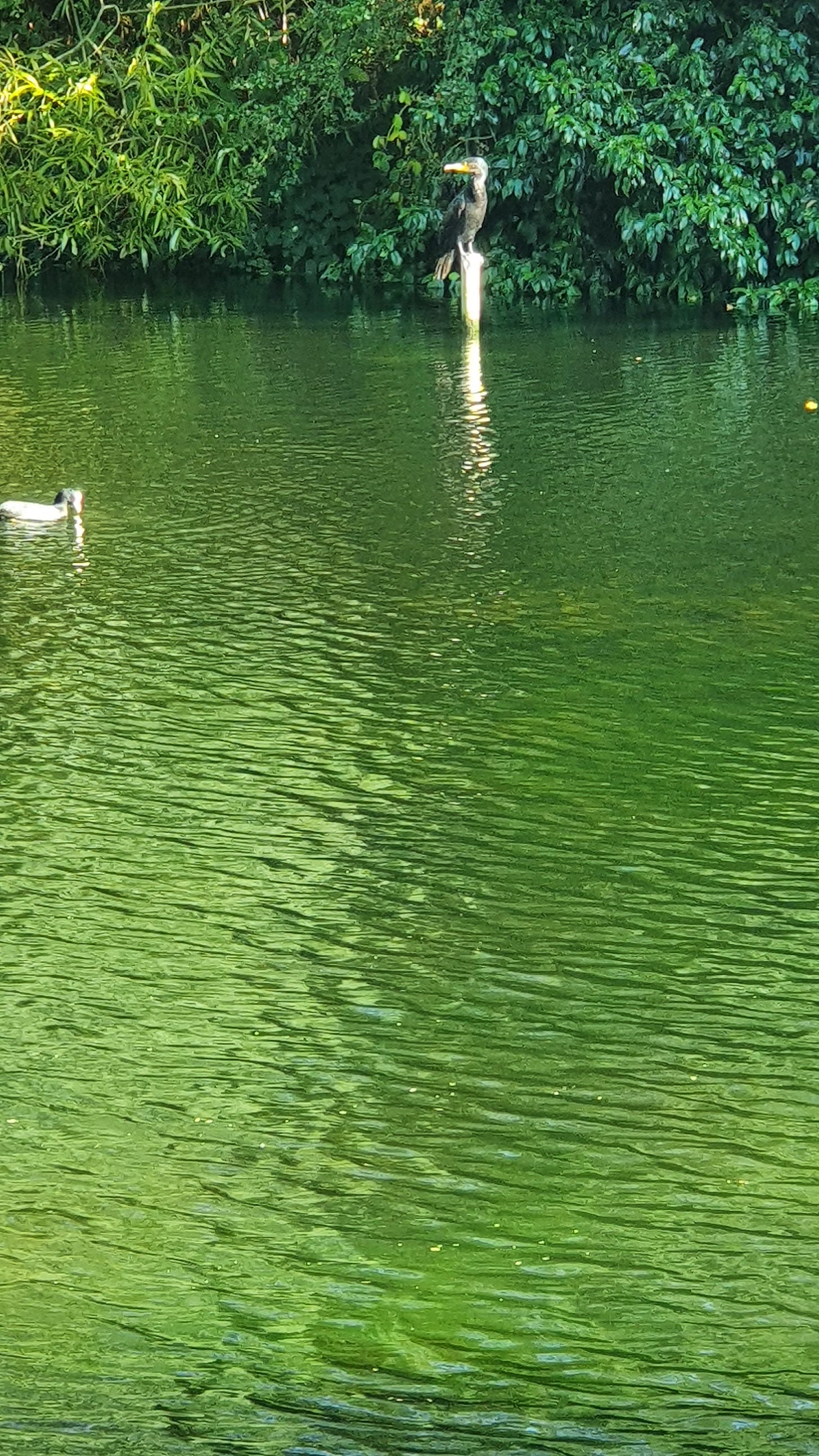Hello and welcome back to Off to Lunch after a summer break. I have spent the last two weeks working on new plans for Off to Lunch, our forthcoming podcast and taking the opportunity to recharge. Starting today, you are going to hear about these plans.
The first of these is a new series that will run once a week as the main analysis in Off to Lunch: what business can learn from sport.
To be clear, this is not what sport can learn from business, nor the business of sport (check out Ed Warner’s superb Sport Inc for that), but what business can learn from what happens on the pitch, on the track or on the court. I think it’s a fascinating, under-explored and underutilised topic with insights that are essential for entrepreneurs, start-ups, dealmakers and FTSE 100 boardrooms - everyone in business. This is why…
I was a business journalist for 15 years before launching Off to Lunch. I joined The Daily Telegraph graduate scheme in 2007 before moving to The Guardian in 2015 and then spending the last four years as deputy business editor at The Times. During that time I covered some of the biggest business stories in Britain - the financial crisis, G4S’s London 2012 security chaos, the Tesco accounting scandal, the Volkswagen diesel emissions scandal, the collapse of BHS, Brexit, and the fall-out from Covid-19. I have also interviewed the bosses of some of the biggest companies in the world - Adidas, Boeing, Inditex, Tesco, Unilever, and Walgreens Boots Alliance. It has become clear to me over the years that there are many connections between what happens in business and sport, and that business should be learning more from sport.
I actually wanted to be a sports journalist when I went into journalism. That was my passion. I was the sports editor at York Vision newspaper and the URY radio station when I was at University and then did work experience placements on The Independent’s football desk and as a runner at Sky Sports to try to bolster my CV and get a job. My hero in journalism was Simon Barnes, then the chief sports writer at The Times. I wrote to him explaining how much I loved his writing and asked for advice about getting into journalism. He not only replied but offered to meet in person to discuss journalism and sport in more detail. His advice was invaluable. They say never meet your heroes, but I am glad I did.
However my plans changed. As part of the Telegraph graduate scheme we were given placements in different departments. My first was on the City desk. I was concerned, to put it mildly. At 22 years old I had little interest or knowledge in business up to that point. But I quickly fell in love with it. One of the reasons is the similarities to sport - the rivalries, the competition, the numbers, and studying people who were supposedly the best in the world at what they do. Also, I loved the transparency of performance - a bit like sport reveals the truth in terms of what happens on the pitch, the track or the court, businesses reveals it through their financial results - even if some are more transparent than others and it can take some digging from journalists or investors to figure out what is actually going on. As an aside, I recommend this book to anyone starting out in business journalism and looking to learn how to read a balance sheet.
However, you don’t see many attempts from the business world to take these links a step further and actually learn from sport. You might see an adviser from the sports world here, a book there, or a chief executive mention in an interview that the person they most admire is a football manager or successful athlete. But sport is a great place for businesses to learn from because it happens so quickly, so transparently and involves people who are pursuing excellence and trying to be the best in their field. It doesn’t matter how well a coach or player claims their team is performing because the truth is there for everyone to see on the pitch. We can see who is successful and who is not. We can work back from there.
Here are some of the areas where business can learn from sport and Off to Lunch will focus:
Innovation
Innovation happens faster in sport than business, I am convinced of this. This is because every match and every season starts with everyone at zero and there are no patents (mostly), meaning bright ideas can be copied and improved. Businesses can and should learn from the methods that sports teams and players use to learn and innovate.
Strategy
“Everyone has a plan until they get punched in the mouth,” Mike Tyson once said. In many ways, sport reveals the pointlessness of a strategy and why constantly adapting is far more important. However, it is more complicated than that. Long-term visions and strategies do work in sport - Pep Guardiola and Manchester City, for instance, have a clear idea of how they want to play football and how they want to build a team.
Leadership
An obvious one, but what is great about sport is we can more accurately work out where leaders drove success rather than benefitting from external factors or simply being in the right market at the right time. There is also a wealth of materials - autobiographies etc - about sportsmen and women talking about the qualities of those who led them, or the leaders themselves explaining their methods.
Coaching and culture
Similar to leadership, but broader than that, we can look at sport to study how to get the best out of individuals and why some people thrive in some environments but not others. Over the last week I have been reading Matt Dickinson’s brilliant new book on Manchester United’s treble-winning team from 1999 which has many insights on this. Spoiler alert: harmony is overrated.
Diversity
How to get people from disadvantaged backgrounds into the upper echelons of their disciplines where one gender or social class has typically dominated. Think Lewis Hamilton in Formula One or the recent success of the England women’s football team.
Working practices
What qualities do sports teams value in their players and how do they ask them to behave? When you are paying remarkable amounts of money to your staff - often in sports where a spending cap restricts how much you can spend - you expect certain things of them and have to invest wisely. This is an important topic as companies consider flexible working and other new working practices. The Arizona Cardinals, the NFL team, recently tried to write a clause into the contract of star quarterback Kyler Murray that he must do four-hours of extra study every week.
Deals
How teams choose which players to sign, how much they spend, and how successful these transfers are offer lessons for M&A and other investments. It is quickly apparent in sport which transfers have not worked and which are transformational investments.
Dealing with competition
As a start-up how do you shake up the establishment? Let’s look at Nottingham Forest’s rise to the top of English football in the late 1970s and early 1980s (Brian Clough is pictured above with assistant Peter Taylor before the 1980 European Cup final). If you are a big business how do you deal with a new rival playing by different rules to you? Let’s look at how Manchester United and Sir Alex Ferguson responded to Roman Abramovich pouring hundreds of millions into Chelsea in the early 2000s, or how Australia responded to England’s Bodyline tactics in the 1932-33 Ashes cricket tour, or how Saudi Arabia and LIV are trying to shake-up golf.
There are many other areas that we will cover in Off to Lunch in the coming months as we explore what business can learn from sport.
The first proper edition of Off to Lunch was sent to subscribers four months ago today, which seems remarkably recent to me given how much I have learned in that time, how much it has grown and how much I have enjoyed getting to know all of you and exchanging ideas with you.
When I started out doing Off to Lunch I thought there was an appetite for something different - a focus on business news outside London, long-term issues over short-term, solutions over problems, the business news that matters. But you are not entirely sure until you press the button and people actually read it. So thank you to you, Off to Lunch’s readers, for not only reading it but engaging with it, sharing it and helping me to find interesting stories and ideas. I have been blown away by the response. There is much more to come.
A brief request from me to keep sharing it and spreading the word. If you read something interesting in Off to Lunch, please do share it with others, it’s how this community will grow and will help the newsletter to get better and better. If you enjoy Off to Lunch, please also consider upgrading to a paid membership, which gives you access to Friday and Sunday’s newsletters as well as Monday and Wednesday, plus access to our events. This helps to fund our work in the future. It’s just £6 a month or £50 a year. That’s cheaper than a pint of beer or a glass of wine in many parts of the UK these days…
Other stories that matter…
I enjoyed this from Stephen Clapham. It is a look at what he has learned from interviewing successful investors for his new podcast (Behind the Balance Sheet)
David Smith, economics editor of the Sunday Times, has written what a lot of people in the City are thinking: the economic policies put forward by Rishi Sunak and Liz Truss are deeply unimpressive (Sunday Times)
Liverpool is not in the top 10 of the UK’s levelling-up league table and is being significantly outshone by local rival Manchester when it comes to attracting new investment. Worse still, it is also losing companies which are already there. This excellent Liverpool-focused newsletter looks at why this is happening (The Post)
One of Britain’s best-known venture capitalists, Sir Michael Moritz, is investing in triathlon as part of an attempt to expand the sport (The Times)
The ethereum “merge” - a big event in the cryptocurrency world - is going to happen on or around September 16. Here is a useful explainer of what is going to happen and why (Quartz)
Another story that Off to Lunch has been tracking closely is the construction of the Britishvolt gigafactory in Blyth. The latest development in this story is not positive. The company’s chief executive has left days after a report in the Guardian said that leaked documents showed it was taking a “life support” approach to its funding (Chronicle)
Amazon has stopped the expansion of its checkout-free grocery stores amid disappointing sales (Sunday Times)
Cineworld, the world’s second-largest cinema chain, has said it could file for Chapter 11 bankruptcy protection in the US. There is so much behind this extraordinary story: overexpansion and debt, ill-timed acquisitions, the fall-out from Covid-19, the rise of streaming services and a drop in the number of blockbuster films despite the success of Top Gun: Maverick (Guardian)
And finally…
Sorry, no recommendation today but a question instead: does anyone know what sort of bird this is?! I spotted it in Victoria Park, east London and have never seen anything like it in the UK. The second photo with the duck hopefully gives you a sense of perspective about its size…
Thanks for reading. Off to Lunch will be back on Wednesday. If you enjoy Off to Lunch then please share it with others and spread the word. If this newsletter was shared with you then please sign-up below to become a member and enjoy all the benefits that come with that
Best
Graham








Thanks very much for the shout-out for Sport inc. Graham! Looking forward to your ‘lessons from sport’